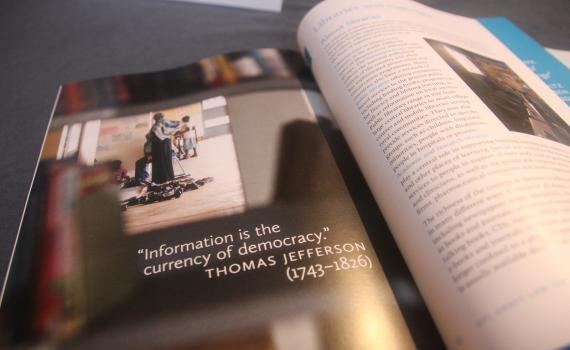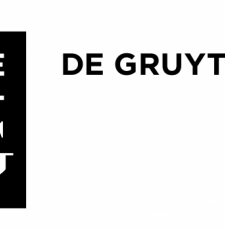
EIFL has updated its draft law on copyright to include a simplified and shortened provision on persons with disabilities.
The update comes as the Marrakesh Treaty to Facilitate Access to Published Works for Persons Who Are Blind, Visually Impaired or Otherwise Print Disabled is set to enter into force on 30 September 2016, following its ratification by 20 member states of the World Intellectual Property Organization (WIPO).
The treaty creates an international legal framework that allows the creation of accessible versions of copyrighted works and makes it possible to share them across borders.
Therefore, many countries are now amending their copyright laws to enable the creation and cross-border transfer of accessible format copies.
“EIFL has been supporting ratification of the Marrakesh Treaty in partner countries since the treaty was adopted in 2013,” said Teresa Hackett, EIFL’s Copyright and Libraries Programme Manager. "The EIFL draft law is one of the tools we use to support its implementation into national law."
The provision on persons with disabilities (Article 17) in the 2014 EIFL draft law, drawn from the text of the Marrakesh Treaty, had six parts. It was decided to simplify Article 17 in the draft law, so that it is now one part, to facilitate its easy implementation into national law.
The new concise article complies with the Marrakesh Treaty and also includes persons with other disabilities, such as deaf people.
The EIFL Draft Law on copyright
The EIFL Draft Law on Copyright including Model Exceptions and Limitations for Libraries and their Users (2016) is a practical guide to assist librarians, as well as their legal advisors and policy-makers, when national laws are being updated. It is designed to support access to knowledge and the public interest mission of libraries.
The provisions apply fully to the digital environment, and contain important measures needed for preservation, inter-library document supply, orphan works, persons with disabilities, translations, and text and data mining, among other activities. It also includes a flexible exception to 'future proof' the law for technological advances. Each exception and limitation is accompanied by a short explanatory note that describes the policy goal of the provision and examples of its effect.
We hope it will continue to be a useful resource for librarians and policy-makers alike.
SHARE / PRINT









